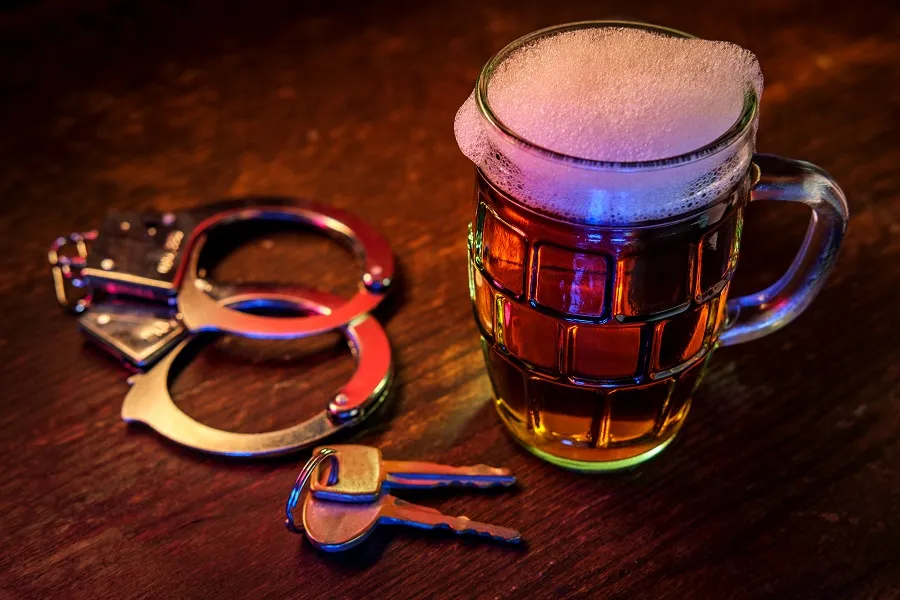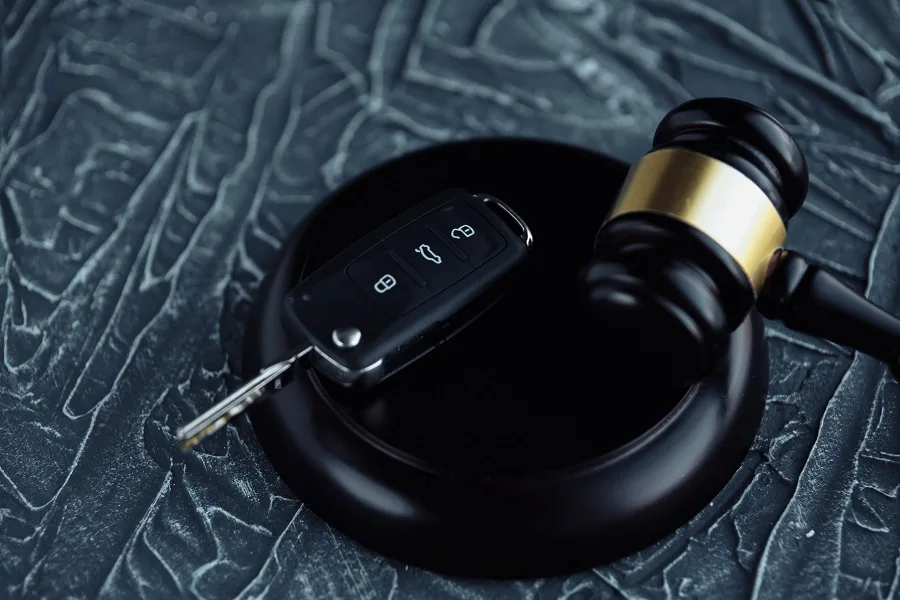Your Third DWI in Texas
A third DWI offense in Texas is classified as a third-degree felony, leading to severe legal repercussions. This classification applies if you have two prior DWI convictions, regardless of when they occurred. The legal system imposes stricter penalties on repeat offenders, making it imperative to have a knowledgeable attorney to navigate the complexities of your case.
A third DWI conviction carries severe penalties, including:
- Fines
Up to $10,000. - Prison Time
A mandatory minimum of 2 years, up to 10 years in state prison. - License Suspension
Suspension of your driver's license for up to 2 years. - Additional Consequences
Mandatory installation of an ignition interlock device (IID), community service requirements, enrollment in substance abuse programs, and a permanent felony record, which can affect employment and housing opportunities.
Can a Third DWI Be Reduced?

While challenging, it is possible to reduce a third DWI charge with a nuanced defense. Factors that may contribute to a reduction include:
- Insufficient Evidence
If the prosecution's evidence is weak or improperly obtained, charges may be reduced or dismissed. - Procedural Errors
Mistakes made during the arrest or investigation can be leveraged to negotiate lesser charges. - Mitigating Circumstances
Demonstrating factors such as commitment to rehabilitation or lack of intent can influence the outcome.
Our experienced attorneys can assess the specifics of your case to determine the best approach for seeking a reduction in charges.
Defending Against a Third DWI Charge
An arrest is not a conviction, and at Turnbull Legal Group, we employ a strategic, aggressive defense to fight for the best possible outcome.
Analyzing the Traffic Stop
Before any DWI arrest, a police officer must have a lawful reason to stop your vehicle. If the stop was unjustified, any evidence collected afterward — including field sobriety test results, breathalyzer readings, and officer observations — may be inadmissible in court.
Our team carefully reviews dashcam footage, police reports, and witness statements to determine whether law enforcement had reasonable suspicion or probable cause to initiate the stop.
Challenging Test Results
Breathalyzer and blood tests are not infallible — machine errors, improper administration, and sample mishandling can all lead to inaccurate blood alcohol concentration (BAC) readings. Additionally, field sobriety tests are highly subjective and often influenced by external factors such as medical conditions, fatigue, and poor road conditions.
If errors are discovered, we can challenge the reliability of the test results and prevent them from being used against you in court.
Reviewing Police Conduct
Police officers must follow strict legal procedures when making a DWI arrest. Any violation of your rights could provide grounds to suppress evidence or dismiss your case.
If law enforcement fails to follow the law, we will aggressively challenge their conduct in court to protect your rights and build a strong defense.
Negotiating with Prosecutors
While a third DWI conviction is a felony, not all cases go to trial. In some situations, we can negotiate with prosecutors to reduce the charges or seek alternative sentencing options that avoid the harshest penalties.
Prosecutors know that facing a strong defense in court is a risk, so they may be willing to offer plea deals or sentencing alternatives in cases where we expose legal flaws or procedural violations.
Building the Strongest Possible Defense
Every third DWI case is unique, and the best defense depends on the specific details of your arrest. At Turnbull Legal Group, we use our experience to identify the best possible legal strategy for your case. If you're facing a third DWI charge, time is critical — contact our legal team today to start building your defense.
The Turnbull Legal Group Approach: Fighting Your Third DWI Charge
With penalties for the third DWI so severe, having an experienced legal team on your side is critical. At Turnbull Legal Group, we use our in-depth knowledge of Texas DWI laws to build a powerful defense.
Free Consultation
We begin by conducting a thorough case review, carefully examining the details of your arrest and the evidence against you. We explain your legal options, answer your questions, and outline a defense strategy tailored to your case.
Investigating Every Detail
We scrutinize every piece of evidence, including police reports, dashcam footage, and field sobriety test results, to uncover errors, inconsistencies, and procedural violations.
Strategic Negotiations
Unlike first or second DWI cases, third-time offenses carry felony consequences, and prosecutors often seek the harshest penalties. However, not all third DWI charges are ironclad if the prosecution’s case has weaknesses — such as flawed evidence or improper police procedures.
Trial Preparation
If the prosecution refuses to negotiate, we are fully prepared to take your case to trial. We challenge every aspect of the state’s case. A third DWI conviction can lead to years in state prison, but with a strong legal strategy, it may be possible to lessen the penalties or even beat the charges.
The 15-Day Rule: Act Quickly to Preserve Your License
In Texas, you have only 15 days from the date of your arrest to request an Administrative License Revocation (ALR) hearing to contest the suspension of your driver's license. Failing to act within this timeframe automatically suspends your driving privileges.
We prioritize swift action to protect your driving privileges. Losing your license before trial can create even more challenges for repeat offenders.
It’s Not the End of the World. Call Us, We Can Help!
A third DWI conviction can have life-altering consequences. Act swiftly to contact our experienced DWI lawyers today. We’ll discuss your case and explore your defense options. The initial consultation is always free.






























